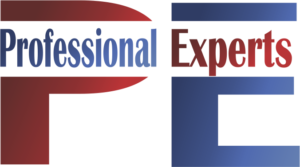The process of choosing the right financial software for any organization involves analyzing the particular needs of the company, especially in terms of its scale, the sector in which it operates, and the opportunities available for expansion.Seek software that is easy to use, connects with other applications, and includes essential features like automating processes as well as reporting in real time.Focus on the security and compliance aspects and seek a reasonable yet expandable solution.
Considering the vast assortment of products available in the contemporary market, choosing the most suitable financial tool for the institution can prove to be an overwhelming process. The right tool would in turn make a lot of processes more productive, increase accuracy, and most importantly cut down time wastage.In this guide, we will highlight the factors to help you make the right business software selection with ease.
Understanding Your Business Needs
Prior to exploring the numerous software solutions that are on hand, it is important to evaluate the precise financial requirements of your organisation.
1. Size of Your Business
The magnitude of your organization can be a key determinant of the financial software that will suit your needs. For example, small scale businesses do not need sophisticated accounting software that may incorporate payroll processing, financial planning and multi-currency transactions rather they just need simple functions such as invoicing, expense reporting and tax calculation. On the other hand, scaling businesses will likely demand more complex solutions that pose enhanced capabilities such as human resource management, predicting revenue and managing more than one currency.
2. Industry Requirements
Every sector has its own accounting and financial needs. In construction for example, contractors may want job costing capabilities while in retail businesses, inventory management may come into play. Hence, picking a financial software that is customizable for your business sector helps in adherence to specific industry standards and enhances satisfaction of the practical requirements of that particular business.
3. Growth and Scalability
While selecting financial software for use in your organization, it is important to look at the growth potential of the business. That is, if the intention is to scale the operations, then a scalable solution becomes necessary. Choose the type of software that comes with a package of additional features and tools that the user can integrate into the system as the business develops.
Key Features to Look for in Financial Software
After evaluating the requirements of your business, it is now the perfect time to shop for suitable features which your financial software should have.
Ease of Use
The application must be simple to use and understand. Complex systems often require a great deal of training that is time-consuming and expensive. Opt for clear interface and easy to use software where employees will not need too much training to get down to work.
Automation Capabilities
Implementing automation in your organization will minimize the time and costs incurred by the business. Search for accounting programs designed for purposes such as sending-out invoices, conducting payroll, and filing taxes that are easily automated. The introduction of automation minimizes the risk for human error and ensures adherence to timelines with regards to financial reporting.
Real-Time Financial Reporting
The timely preparation and delivery of financial statements are fundamental to making the correct business decisions. Financial software must be able to prepare any given report, for instance, balance sheets, income statements, cash flow reports, e.t.c whenever it is needed. Additionally, there should be a development in the software that enables the report to be prepared as per stipulation of the organization.
Integration with Other Tools
The financial application you use should allow for easy interoperability with other business applications. This may involve customer relation management (CRM) applications, payroll processing solutions, and tax administration systems. Its purpose is to ensure that the different systems are not island but interconnected so that data does not require too much manual input thus lessening the chances of errors.
Security and Compliance Considerations
They deal with sensitive data and therefore security and compliance are critical factors in every such decision.
Data Security
With the increasing cyber threat landscape, protecting the financial information associated with your business is very crucial. Choose the applications with robust security protocols like encryption, two factor authentication, secure cloud storage and others. Ensure however that the software complies with all the data protection legislation such as GDPR, CCPA and others.
Compliance with Tax Laws
Dealing with tax obligations can be a daunting task especially if you are assessed tax in different places. Select a financial application as per your needs which is up to date with the tax rules and regulations or which does the tax computations as per the location of your business operations respectively. This results in minimizing the chances of incurring penalties and also allows for the adherence of the business to the local taxation laws.
Pricing and Budget Considerations
Pricing will certainly be an essential aspect of the financial software you choose in the end.
Upfront Costs vs. Subscription Models
The pricing of financial software differs from one product to another. Some solutions may be bought outright, while others follow more of a rent model where one has to pay a fee for every period of use of the product. Most of the Soft-Law Public Cloud operated applications employ a subscription pricing model, which usually comprises maintenance and upgrade services within the specific period.
Hidden Fees
Pay attention to potential extra costs which may include additional users, higher tiers, and premium support. It is essential that one understands the entire structure of the prices before agreeing on any software solution. Always choose the pricing structure that is clear so that there will be no hidden costs incurred in the future.
Free Trials and Demos
ntless financial software vendors provide free trial versions or demonstrations. Do not leave such chances to use the software’s capabilities and learn its interface before buying the product. More so, this will help in ascertaining whether the product is appropriate for the company’s needs.
FAQ’S
What is the best software management ?
While the best software management solution will ultimately depend on your unique business requirements, there are well-known solutions such as Jira, Trello, and Asana which are more customizable, easy to navigate and have extensive project management capabilities.
What is financial software in business ?
Financial applications in organizations help carry out routines like accounting, invoicing, payroll and financial reports with the purpose of automating those chores and making it more effective and precise financial management
What software do most companies use for accounting ?
Average accounting software applications, such as QuickBooks, Xero, and FreshBooks, are used for the purposes of billing, expenses, and financial reporting by most of the organizations.
Conclusion
In this day and age, the majority of organizations utilize accounting software applications that are available both on mobile devices and personal computers, for instance, QuickBooks, Xero or FreshBooks, to handle their financial management.This is often the case as these applications provide basic features such as creating invoices, tracking expenses, generating reports, and these features are very friendly to use.They ease the work of keeping accurate accounts such that all businesses, small and big, can be kept in order and still comply with tax regulations.
Along with these generic offerings, austere vertical or organizational options like Sage Intacct or NetSuite serve a business with more sophisticated monetary parameters. Such systems provide more advanced properties such as support of multiple currencies, high-end reporting, and other capabilities which are adaptive thus fit growing businesses or bigger clients who require advanced financial management systems.


